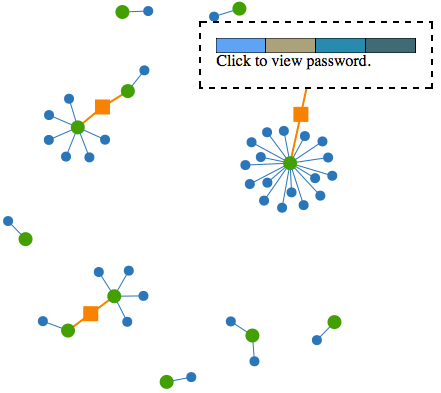Security Threats and Social Media Opportunities: The Monday Round-Up
Small Photo
Photo

The past week has demonstrated how governments and governing bodies are approaching privacy protection and filtering, and how benevolent and malicious actors have been able to take over social media and news platforms. Below is our round-up of these events, as well as other interesting tools and news stories:
- There has been quite a bit of buzz over the new social networking site Pinterest. Over the weekend, news broke of 16 copycat sites of Pinterest that have emerged in China.
- The Wall Street Journal asked Rebecca Mackinnon eight questions about her new book, Consent of the Networked.
- Mozilla Labs launched a new add-on called Watchdog, which visualizes repeated passwords. This tool, coupled with the Password Project's list of cracked paswords will hopefully reinforce the importance of better password habits.
- New Eurasia explores use of the Internet and censorship in Turkmenistan.
- The New York Times delves into the attack on the Vatican website. Reports have also indicated that Al Jazeera may have been attacked by the Syrian Electronic Army in a spearphishing scheme.
- Zeynep Tufecki explores the role of Youtube in the "Surveillance Revolution".
- The Center for Democracy and Technology evaluates the OECD Principles for Internet Policy Making.
- Reports have emerged from Pakistan showing a request for proposals for a national filtering system.
- EFF explains how to remove your viewing and search history from Youtube, ahead of Google's privacy policy changes.
- Ubuntu has launched its OS for Android.
- The SANS Institute published their research on how to profile hackers.
- Prominent Chinese activist Qin Yongmin was warned by state police not to create a website promoting "peaceful" reform. However, cracks in the Great Firewall seem to be emerging, as netizens were able to flood Obama's Google + page with calls for opposing Chinese censorship, and reports have emerged this morning claiming Chinese netizens can now access Facebook and Twitter.
- According to the Guardian, six of the world's top consumer technology companies will ensure that their apps will provide greater privacy disclosures to protect consumer data. Meanwhile, the White House has published a Consumer Privacy Bill of Rights and the European Commission evaluated how the EU is dealing with privacy online.
- Venture Capital for Africa (VC4Africa) explains the popularity of Mxit, Africa's largest mobile social network.
Topics
